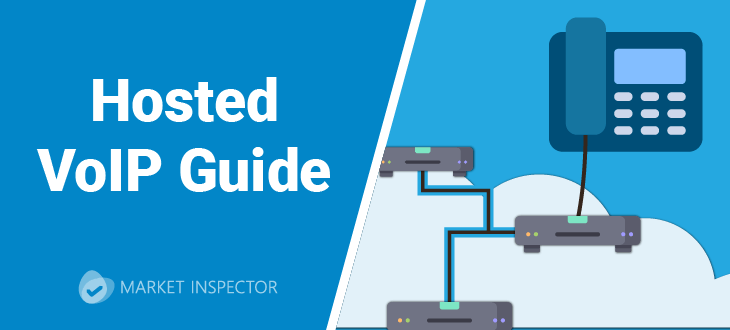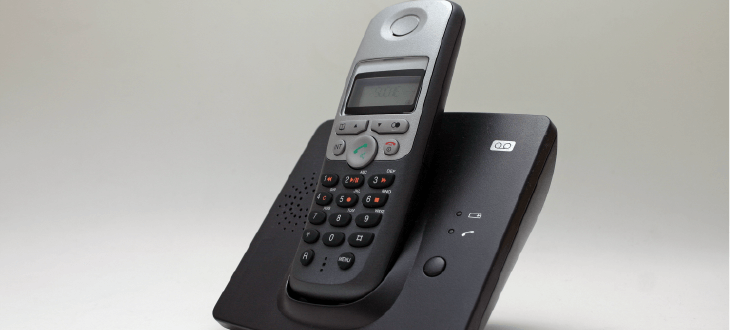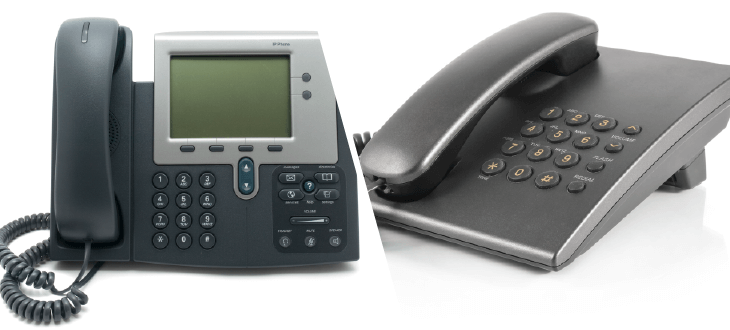Answer these simple questions and we will find you the BEST prices
Which type of solar quotes do you need?
It only takes 30 seconds
100% free with no obligation

Get up to 4 quotes from our selected suppliers by filling in only 1 form

Save money by comparing quotes and choosing the most competitive offer

Our service is 100% free and with no obligation
Hosted VoIP: Is It The Best Solution For Your Business?


- Hosted telephony solutions cost between £5 and £50 per user per month. The costs vary depending on the chosen VoIP provider and the features a company requires.
- Hosted VoIP features include advanced call management, voicemail-to-email, auto-attendant, call forwarding, video conferencing, and integration with CRM systems. These features enhance communication efficiency and support remote work by enabling employees to connect from anywhere via the Internet.
- Hosted phone systems rely on internet connectivity and require a minimum of 100 kbps for high call quality.
A hosted VoIP is a phone service that leverages cloud-based technology to make and receive calls over the internet rather than relying on physical wires like traditional phone lines. A VoIP provider manages all the data, enabling businesses to install VoIP software on their own devices and reduce the costs associated with traditional wired phone lines.
A hosted telephone system is an optimal solution for modern business communication, offering flexibility, cost savings, and advanced features. It also supports remote work and scalability, providing functions such as voicemail-to-email, call forwarding, and video conferencing to enhance efficiency.
In the following sections, we will explore the benefits and potential drawbacks of hosted telephony, discuss associated costs, analyse the best providers available, and outline the features available.
Determining if a hosted phone system is the right choice for your business is crucial. Internet reliability, security, and specific communication needs must be carefully considered. Consulting with knowledgeable professionals in hosted VoIP systems can provide personalised advice that aligns with your company's needs and budget.
Market Inspector offers the opportunity to receive four free non-binding quotes from experts. Click the link below to fill out our brief 30-second form and access these quotes promptly.
- Describe your needs
- Get free quotes
- Choose the best offer
It only takes 30 seconds

Understanding hosted telephony

Hosted telephony or cloud-based PBX, is a communication solution where a third-party provider manages and hosts the telephony infrastructure off-site. Unlike on-site VoIP systems, hosted telephony uses cloud technology to store data at the provider's remote location, hence "cloud-VoIP."
This setup eliminates the need for businesses to purchase and maintain additional hardware, significantly reducing communication costs. As a result, companies are only required to pay for VoIP providers. This can cost between £5 and £50 per user per month.
A hosted phone system converts your voice into digital data packets, enabling seamless communication over the internet. Here's a step-by-step breakdown of the process:
- Initiating a call: You or an employee makes a call using a computer, smartphone, or VoIP phone.
- Voice conversion: When you speak into the microphone, the VoIP system converts your analogue voice into a digital signal.
- Data packet creation: The system divides the digital signal into smaller data packets, tagging each with sender and recipient information.
- Internet transmission: These data packets are sent over the internet to the VoIP provider's servers, much like transferring files online.
- Routing the call: The VoIP provider acts as a switchboard, determining the appropriate route based on the recipient's number.
- Receiving the call: At the recipient's end, data packets are reassembled and converted into an analogue signal using a digital-to-analogue converter.
- Communication: The recipient hears your voice, enabling a clear and smooth conversation.
The process enables hosted phone systems to provide reliable, high-quality communication without extensive on-site hardware. A stable internet connection allows global communication in seconds, potentially reducing telecommunication costs by 50%.
Cloud hosted systems allow employees to use mobile devices like laptops for calls, promoting remote work and seamless communication. This flexibility and scalability make hosted telephony ideal for businesses seeking enhanced communication without managing complex on-site systems.
What does a hosted phone system look like?
A hosted phone system typically involves minimal on-site equipment while leveraging cloud-based infrastructure managed by a third-party provider. Different hardware is available to meet small, medium and large companies requirements. The essential hardware components include:

- IP desk phones, which connect directly to the internet via Ethernet cables, provide high-quality voice communication and advanced features. IP phones with large displays and user-friendly interfaces offer easy access to features like call forwarding, transfer, and conferencing.Larger enterprises often opt for a comprehensive setup with advanced hardware such as IP desk phones to support extensive communication needs.

- Video/conference IP phones provide high-quality video conferencing along with VoIP functionality. They have integrated cameras, large touchscreens, and advanced audio for seamless face-to-face meetings. These phones are equipped with multiple microphones, advanced noise-cancellation technology, and 360-degree audio pickup to ensure that every participant can be heard clearly, regardless of their position in the room. The clear video and audio offered by these phones benefit remote teams, virtual consultations, geographically dispersed businesses, and customer service by improving communication outcomes.

- Softphones are software-based VoIP applications that can turn any computer, smartphone, or tablet into a functional communication tool. They provide great flexibility and mobility, enabling users to make and receive calls from anywhere with an internet connection. Small businesses, particularly, can benefit from this hosted VoIP as it requires minimal physical infrastructure.
This streamlined hardware approach reduces the need for extensive maintenance and infrastructure costs, making hosted phone systems an attractive solution for modern businesses seeking scalable, cost-effective and flexible communication options.
Hosted VoIP: services, features and characteristics
Hosted VoIP (Voice over Internet Protocol) services offer businesses cloud-based telephony solutions, eliminating the need for traditional on-premises PBX (Private Branch Exchange) systems. Smaller businesses often opt for basic features at a lower cost, while medium—to large enterprises typically choose more advanced packages that include more detailed features. Below are the features typically associated with low, medium, and high price ranges.
| Low cost feature | Description |
|---|---|
| Basic call handling | Call forwarding, call holding, and voicemail |
| Voice to email | Voicemail messages are sent to email as audio files. |
| Call queuing | Manages incoming calls by placing them in a queue until answered. |
| Medium cost feature | Description |
|---|---|
| Audio-attendant | Automated system that directs callers to the appropriate department or extension. |
| Conference calling | Allows multiple participants to join a single call. |
| Mobile app integration | Enables the use of VoIP services on mobile devices through dedicated apps |
| Call analytics | Provides detailed reports on call metrics such as duration, volume, and patterns. |
| High cost feature | Description |
|---|---|
| Video conferencing | Integrates high-quality video calling and conferencing features. |
| CRM integration | Integrates with Customer Relationship Management (CRM) systems. |
| Advanced security features | Includes encryption, secure voice, and compliance with security standards. |
| Customizable call flow | Allows businesses to set up complex call routing and handling rules. |
| Global presence | Offers international numbers and global call routing. |
By leveraging cloud technology, hosted VoIP reduces the requirement for extensive hardware, leading to cost savings and simplified maintenance. Hosted VoIP systems offer a versatile, secure, and cost-effective communication solution supporting businesses of all sizes and budgets.
Traditional line vs standard VoIP vs cloud VoIP

Grasping the distinctions between traditional phone lines, standard VoIP, and cloud VoIP systems is crucial for informed business communication decisions. We've outlined traditional, standard, and cloud-based VoIP features to help you compare and determine the best option for your business.
| Feature | Traditional line |
|---|---|
| Infrastructure | Relies on copper wires and on-site hardware |
| Call quality | Reliable and consistent even with power outages |
| Cost | Higher costs especially for long-distance calls |
| Scalability | Tied to physical location |
| Mobility | Location-dependant |
| Features | Basic call-handling |
| Maintenance | Requires on site maintenance |
| Security | Secure but limited to physical lines |
| Features | Standard VoIP |
|---|---|
| Infrastructure | Uses internet to transmit voice as digital data packet |
| Call quality | Dependent on internet quality |
| Cost | Lower costs, especially for long-distance calls |
| Scalability | More scalable than traditional lines |
| Mobility | Supports mobility to some extent |
| Features | Call forwarding, voicemail, conference calling |
| Maintenance | Some on-site maintenance is required |
| Security | Dependant on network security |
| Features | Cloud VoIP |
|---|---|
| Infrastructure | Hosted in the cloud, no need for on-site PBX hardware |
| Call quality | Generally high, leveraging provider's robust infrastructure |
| Cost | Lower overall costs, eliminates hardware and maintenance costs |
| Scalability | Highly scalable, easily add and remove users and features |
| Mobility | Highly mobile, supports remote work and multiple locations |
| Features | Extensive features including CRM integration, video conferencing |
| Maintenance | Minimal maintenance, managed by provider |
| Security | Robust security managed by provider |
It is essential to consider your company's budget and infrastructure capabilities. Traditional lines can be costly and require on-site hardware maintenance.
Additionally, you should evaluate your need for advanced features and scalability. Standard VoIP offers cost-effective communication with enhanced features, while cloud VoIP provides flexibility, mobility, and integration options for growing businesses.
Assessing internet reliability is crucial since standard and cloud VoIP systems require a stable, high-speed connection for clear communication.
The best hosted VoIP providers in the UK
The leading hosted voip providers in the UK market are distinguished by their comprehensive feature sets, reliability, and affordability. They cater to individual and business needs. Below, we will showcase the best VoIP providers in the UK market, highlighting their most valuable features and packages.
Vonage
Vonage offers advanced features such as high-definition voice calls, video conferencing, call routing, and integration with popular business tools like CRM systems and Microsoft Teams. It provides scalability, allowing businesses to add or remove users as needed. Its mobile app ensures seamless communication on the go. Competitive pricing and comprehensive customer support make Vonage a reliable and flexible VoIP solution that enhances productivity and communication efficiency.
3CX
3CX VoIP system maximises efficiency and streamlines operations with various features. Known for its clear call quality and easy installation, your tech team can set up 3CX in just a few days, providing a high-performance solution suitable for businesses of all sizes.
BT
This VoIP is provided by British Telecommunications, offers a reliable and robust solution that seamlessly integrates with residential and business telecommunication needs. BT delivers a cloud-based phone system with flexible, powerful call management features and personalised guidance to help you choose the best options.
RingCentral
RingCentral provides comprehensive, unified communication tools for voice, video, and messaging, making it a great all-in-one solution. It integrates seamlessly with CRM platforms like Salesforce, HubSpot, Pipedrive, and Zoho, enhancing overall business efficiency.
8x8
8x8, known for its global presence and robust security features, caters to enterprises with international operations and strict compliance requirements. It offers numerous features that scale with company growth and support international calling, making it ideal for global companies.
These providers are highly regarded for their innovative features, customer support, and cost-effective plans, making them some of the best choices for businesses looking to enhance their communication infrastructure in the UK.
How much can a cloud hosted phone system cost?
The cost of a cloud-hosted phone system can vary widely depending on the provider, the features included, and the scale of the deployment. According to Startups, an average VoIP solution can cost between £5 and £50 per month.
For small businesses, basic plans can start as low as £10 to £20 per user per month, offering essential features like call handling, voicemail, and basic call analytics.
For medium sized businesses, mid-tier plans, which include advanced functionalities such as auto-attendants, mobile app integration, and CRM integration, typically cost between £20 to £40 per user per month.
Large companies can opt for enterprise-level plans, which offer comprehensive features like video conferencing, global calling, advanced security, and detailed analytics, which can cost upwards of £40 to £50 per user per month.
Establishing your own VoIP server to reduce costs on cloud-hosted phone systems is possible. Running your VoIP service requires setting up and managing on-site servers and PBX (Private Branch Exchange) systems, overseeing software, ensuring network reliability, and implementing strong security measures. While the initial costs may be higher, you can save on ongoing expenses. However, it's important to note that you must invest more time in maintaining your own VoIP server.
It's essential to remember that, in addition to the hosted VoIP service itself, you will need to budget for an internet provider. Selecting a reliable provider with a strong internet connection is crucial for effectively functioning your VoIP system. Nexitiva advises a minimum of 100 kbps to support a hosted phone system.
The monthly costs for broadband can vary between £15 to £50 on average. Additionally, if your business requires VoIP phones and headsets, you should also consider the additional expenses. These items can range from £20 to £300, depending on whether you choose basic or premium models.
Hosted VoIP solutions: advantages and disadvantages

Hosted VoIP solutions offer many advantages, such as cost efficiency, scalability, and advanced features. However, it's essential to consider potential disadvantages when determining if hosted phone systems are the right choice for your business. Here are the advantages and disadvantages of hosted VoIP solutions:
Advantages
- Cost efficiency: Hosted VoIP systems eliminate the need for expensive on-site PBX hardware and reduce the costs associated with maintenance and upgrades. Businesses typically pay a subscription fee, which includes access to the latest features and updates. Companies can save up to 50% on telecommunication costs by choosing cloud voip systems.
- Scalability: Hosted VoIP systems are highly scalable, allowing businesses to easily add or remove users and features as their needs change. This flexibility is particularly beneficial for growing companies or those with fluctuating staffing levels.
- Increased productivity: With faster connection and reduction in managing phone lines, hosted telephony systems can increase employee productivity 67%, according to Learn.G2
- Mobility and flexibility: These systems facilitate remote work by allowing employees to place and receive calls from anywhere with an internet connection. Mobile and softphone applications enable seamless communication across different devices, improving workforce mobility.
- Advanced features: Hosted telephony services often offer a variety of advanced features, including voicemail-to-email, auto-attendant, call forwarding, video conferencing, and CRM integration. These features enhance communication efficiency and improve overall business operations. Additionally, these features can help companies achieve a return on investment (ROI) of between 9% and 27% by using VoIP systems.
- Reliability and support: Service providers manage the infrastructure, ensuring high reliability and uptime. They also provide customer support to handle technical issues, freeing businesses from the burden of maintaining the system.
Disadvantages
- Internet dependence: Hosted telephony systems depend on a stable, high-speed internet connection. Reliable broadband service is essential to prevent communication disruptions caused by internet connectivity issues.
- Security concerns: As VoIP systems transmit data over the internet, they can be vulnerable to cyber threats, such as hacking and phishing. To protect sensitive information, it is essential to ensure robust security measures, including encryption and regular updates.
- Quality of service: Call quality may be impacted by bandwidth, network congestion, and latency. Businesses must ensure their network infrastructure can support VoIP traffic to maintain high call quality.
- Initial setup and training: Switching to a hosted VoIP system requires an initial setup and may involve training employees to use new features and interfaces. This transition period can temporarily affect productivity.
Carefully weighing the benefits and drawbacks can help determine if hosted VoIP is the ideal solution for your company's communication needs. Market Inspector can offer you four complimentary quotes from industry experts to assist your decision-making process. Click below to complete a brief 30-second form and receive these quotes promptly.
- Describe your needs
- Get free quotes
- Choose the best offer
It only takes 30 seconds

FAQ
A hosted VoIP system is a cloud-based phone service in which a provider manages the telephony infrastructure off-site. It enables businesses to make and receive calls over the Internet without requiring on-site PBX hardware.
Hosted VoIP and Cloud VoIP are often used interchangeably. They are phone services managed off-site by a provider and delivered over the internet.
Yes, hosting your own VoIP service is possible, but it demands extensive technical expertise and infrastructure. Hosting your VoIP service involves establishing and maintaining on-site servers and PBX (Private Branch Exchange) systems, managing software, ensuring network reliability, and implementing robust security measures.
The two types of VoIP are standard VoIP and Hosted VoIP. Standard VoIP involves on-site hardware and a server, while Hosted VoIP has an off-site server managed by a third-party provider in a data centre.

Caoimhe is an experienced content writer and researcher who is passionate about providing accessible information to every reader. With a background in English literature and Sociology, she combines the two disciplines to create cohesive, well-thought-out, and well-informed pieces.
We strive to connect our customers with the right product and supplier. Would you like to be part of Market Inspector?

